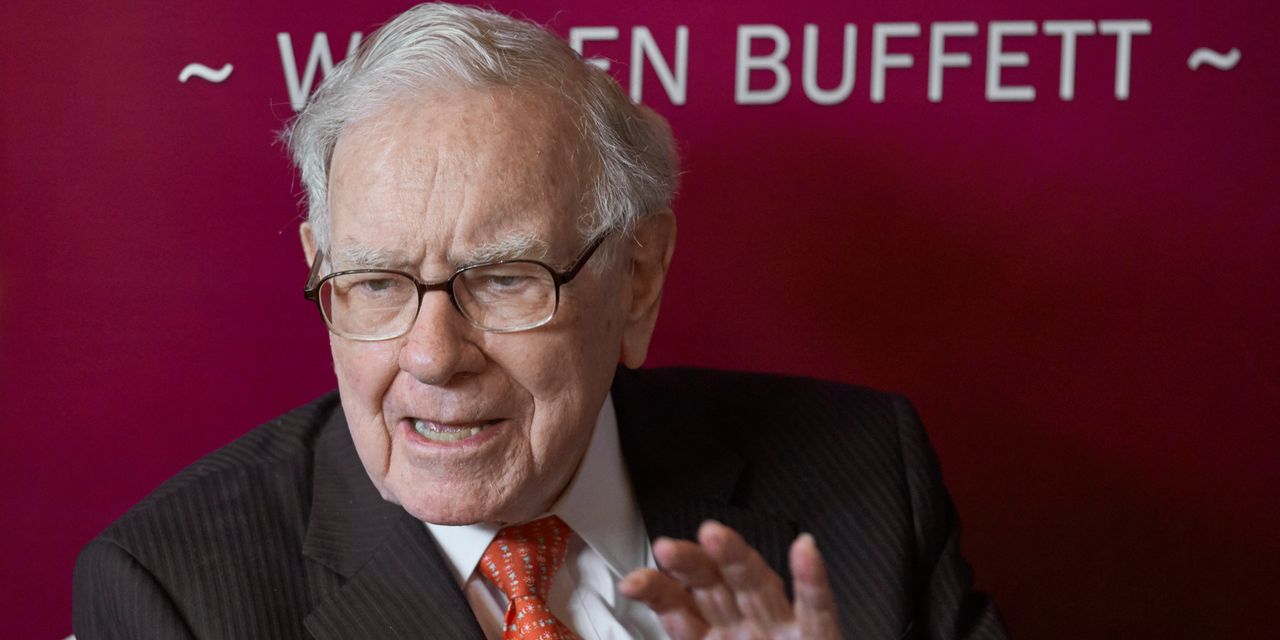
Warren Buffett famously noted in 2007 that his own marginal tax rate is below 20% while his staffers’ average exceeds 30% — and that’s still true. For some ultrarich Americans, their tax rate is far less than 20% today, while 18.5 million ordinary Americans face nearly a 40% rate.
All of this will continue under any changes to U.S. tax policy that President Joe Biden proposes — a persistent violation of what the Obama White House in 2012 coined the “Buffett Rule” — that those earning millions should not pay a lower rate than those earning thousands.
Buffett, a centrist, proposed a simple solution: an annual income tax, without loopholes, of 30% on incomes between $1 million and $10 million and 35% on incomes above that. Buffett’s target for such taxes are clearly the ultrarich, people like himself, from hedge-fund managers and celebrity CEOs to star athletes and entertainers. This simple proposal has yet to be enacted — and Biden is not proposing it.
Senator Elizabeth Warren (D-Mass.), a partisan progressive, has proposed an annual wealth tax of 2% on the $50 million cohort and 3% on the billionaires. While bold and novel compared to America’s traditional income tax, this would not raise furious fairness objections from the overwhelming majority of Americans. Even some billionaires endorse it. Yet Biden is not proposing it.
Instead, Biden proposes to increase the top personal rate on annual income above $400,000 to 39.6% from 37%. This threshold is far below any conception of the ultrarich. Moreover, it’s below $440,000, a current breakpoint for higher capital-gains rates; $500,000, a figure Buffett mentioned in supporting Obama’s reversal of the Bush tax cuts; or $540,000, encompassing the top 1%.
Why has Biden forsaken the simple targeted approaches suggested by Buffett and Sen. Warren? Billionaires and other ultra-rich are powerful, though a minority, and taxes such as Buffett or Warren propose would apply inexorably, without loopholes. Biden’s political calculation is to portray such proposals as extreme, making his proposal seem moderate. Under this subterfuge, the ultra-rich win while millions of ordinary people lose.
Another persistent federal tax-code defect the Biden plan continues is ignoring wide regional disparities in costs of living. In addition, a single national tax rate ignores the varying layers of state- and local tax across the country, a particularly pernicious oversight after the Trump tax-law changes revoked their longstanding deductibility from federal taxation. The Biden plan does nothing to address such defects.
One reason the elite pay less than ordinary Americans are the many loopholes that politicians slip into the tax code. The most notorious of these concerns the income of hedge-fund managers. They labor hard to deliver financial services to clients in exchange for fees. But rather than treat these fees as ordinary income, taxable at up to 37% today, they use magic to declare that such fees are really capital gains (called “carried interest”). Such capital gains have for 100 years been treated at lower rates, today around 20% for high-earners.
Buffett has expressly advocated abolishing carried interest that render labor into capital for tax purposes. The Biden plan again shrinks from facing down this ultra-rich trickery. Instead, the Biden plan would reduce the incentives to do so by making the same rate of 39.6% apply to both ordinary income and capital gains for all those reporting more than $1 million in income. That may sound good on paper, but it will strike only partly at the heart — not of the ultrarich — but the upper middle-class: many worker-savers considering selling stock to buy a larger home will face twice the tax bill.
Biden’s blunt proposal overlooks the many reasons U.S. capital gains and earnings have been treated differently for most of the past century. For instance, capital gains are fully taxed while capital losses are not fully deductible; capital gains are not adjusted for inflation to reflect their real value but levied on nominal increases in price, and capital gains received by shareholders have already been taxed once to the issuing corporation’s profits earning them.
Biden’s alignment of capital gains and earnings appears to be intended to reduce incentives the elite have to reclassify their earnings as capital gains. But while that would make clear sense in the case of carried interest earned by a small minority of powerful hedge-fund managers, it makes no sense for the millions of Americans who both work hard and invest. For fund managers, they may not welcome such reform, but by avoiding being targeted directly, they preserve other loophole possibilities.
A final perversion brings us to an investment lesson. Any capital gain tax, and especially a higher one, increases the value of a buy-and-hold investment philosophy. While generally a superior investment strategy, which Buffett typically follows and endorses, there are times when even the most patient investor rationally opts to sell an investment. A high capital-gains rate imposes a significant deterrent against doing so.
Politicians across the aisle have acknowledged Buffett’s practical wisdom on tax policy. After all these years, they should finally act on it.
Lawrence A. Cunningham is a professor at George Washington University, longtime shareholder of Berkshire Hathaway, and publisher, since 1997, of The Essays of Warren Buffett: Lessons for Corporate America. For updates, including an invitation to his exclusive webinar during Berkshire Hathaway’s 2021 annual meeting, sign up here.
Plus: Former Vanguard CEO: 5 hurdles facing investors now and how to overcome them








